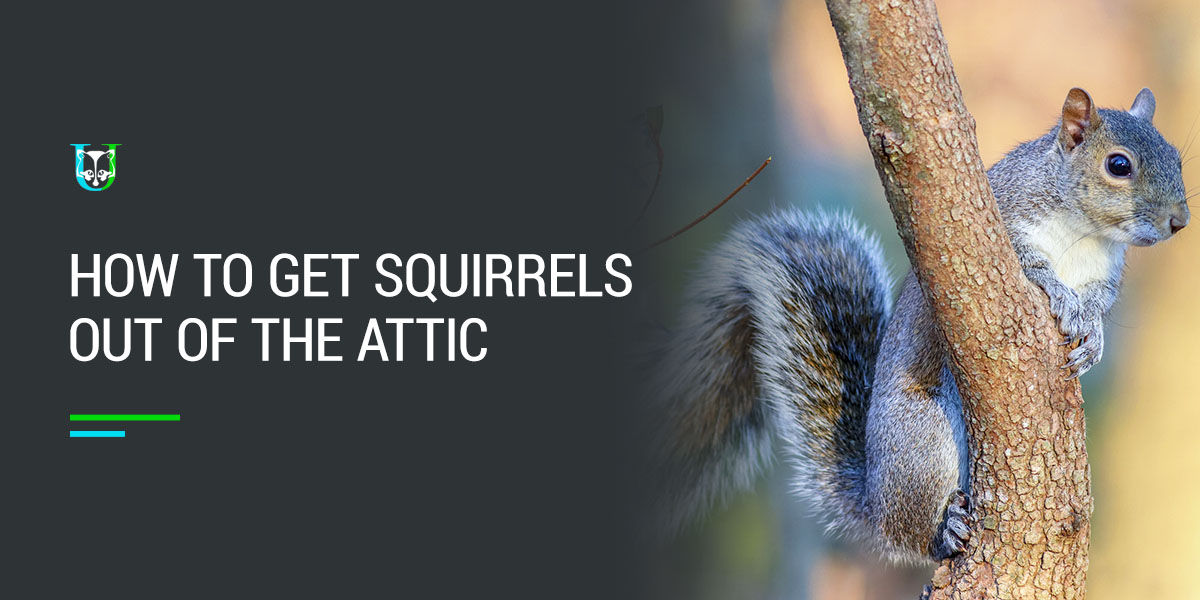
Dealing with squirrels in your attic? Whether you’ve been hearing them scurrying and scratching around or have seen some teeth marks and droppings, you want to take action as soon as possible.
Call Now for Professional Squirrel Removal ➔
Potential Ways to Get Rid of Squirrels in Your Attic
If you are dealing with squirrels in your attic, you can try several methods to try and get them out. Here are a few of the best ways:
- Make your home and yard unwelcoming: Many things can attract squirrels to your yard. Everything from overgrown brush to bird feeders can make your yard habitable to squirrels. Trim up hedges, remove branches and debris, and minimize food sources so that squirrels will be less likely to find your home attractive.
- Use an unappealing scent: Squirrels find several scents repulsive. If you use an unappealing scent like apple cider vinegar or peppermint in your attic, you can potentially deter them from taking up residence.
- Seal entry points: If there are any holes or cracks in areas like your fascia boards, siding or roof, you’ll want to seal those up right away. These openings, even if they are small, can provide entry points for squirrels.
- Install strobe lights: Squirrels aren’t fans of lights, especially in areas where they are trying to nest. Installing strobe lights around your attic or a motion-activated device will help keep them away.
- Reach out to professionals: The most effective squirrel prevention method is to have a team of professionals handle your squirrel infestation needs. Professionals know where and how to look for signs of squirrels and how to develop effective plans for removing them and preventing them from returning.
Why Prevention Is Key
While taking prompt action at the first signs of a squirrel infestation is crucial, it’s even more important to take preventive steps to keep them from coming inside your home. When squirrels get inside, they can damage your belongings and put you and your family at risk for parasites and diseases. Whether they’re leaving droppings behind or chewing through wires, you don’t want to risk squirrels getting inside your home and wreaking havoc.
Having a team of professionals inspect your home and taking any necessary preventive steps will ensure your residence stays protected year-round. These experts will develop long-term solutions tailored to your specific needs, keeping your property and family safe.
Contact Urban Jungle Wildlife Removal Today
At Urban Jungle, our team is thoroughly trained and provides services like trapping and removal, exclusion and repair, and cleanup and sanitation to make sure squirrels leave and stay away from your home. Contact us today to schedule wildlife removal services.
